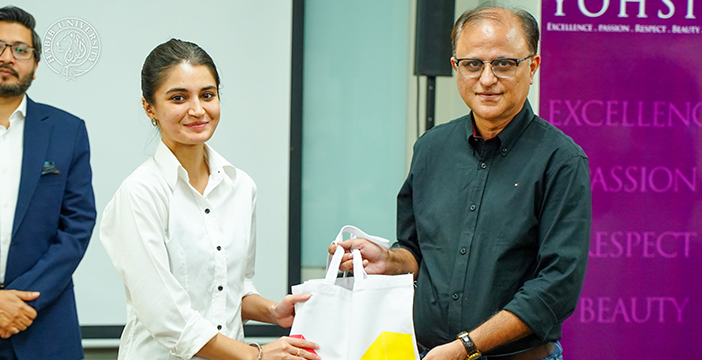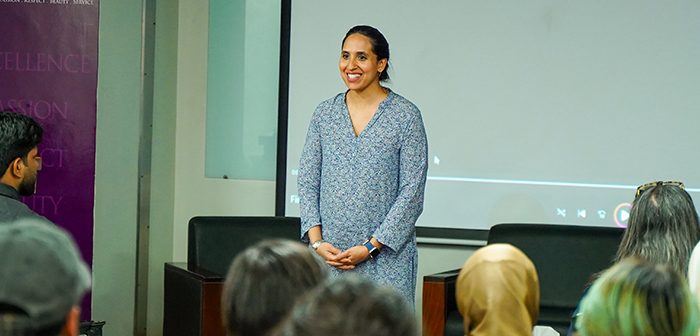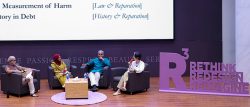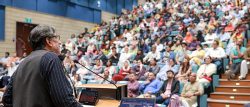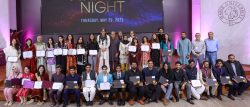On April 21, 2025, Habib University hosted Sustainable Urban Forestation in Karachi, which is an initiative to spotlight citizen-led innovations and foster cross-sector dialogue around ecological restoration. Building on a consultative workshop held in 2024, the event sought to address one of the most pressing issues facing the city: the degradation of its natural environment.
Designed as both an exhibition and a dialogue platform, the event brought together a diverse network of participants, including student researchers, civil society actors, ecological start-ups, and nonprofits, all contributing to a shared vision for a greener Karachi. The initiative is part of an ongoing series aimed at conducting inclusive dialogues with a range of stakeholders, from individual citizens to authorities responsible for policy and regulation. At its core, it seeks to design implementable, long-term solutions that reflect a diversity of perspectives.
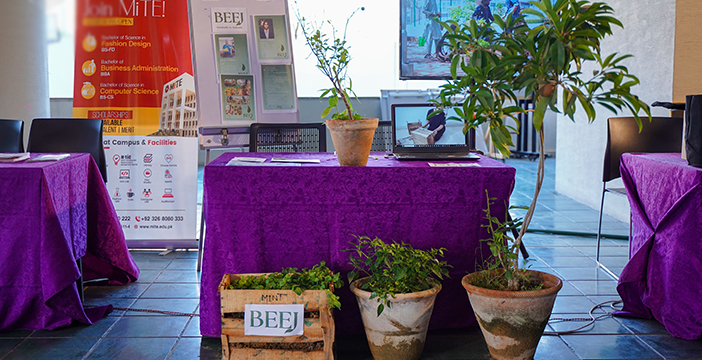
Rethinking Karachi’s Green Crisis
As Karachi rapidly expands, its natural environment is under increasing pressure, from rising temperatures and air pollution to the steady loss of green spaces. But even more damaging are everyday practices that quietly degrade our ecosystems: excessive trimming of trees, uprooting of healthy vegetation, sweeping away organic matter, and soil disruption through deep tilling (“godai”). These actions weaken the soil’s ability to store carbon, retain moisture, and support biodiversity, rendering plantation drives ineffective if not paired with ecosystem protection.
In this context, sustainable urban forestation is essential. It represents environmental restoration, and a collective call to action that unites knowledge with responsibility.
Grassroots Innovation at the Forefront
The event combined interactive exhibits, research-based projects, and community-driven solutions to the ecological issuesFrom Indus Valley School of Art and Architecture (IVSAA), Mushroom Matters was a project exploring mycelium’s ecological and design potential.
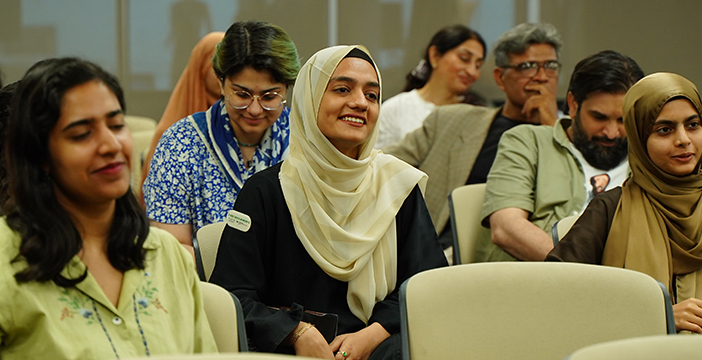
Another project titled Shifting Light and Shadow introduced a kinetic model to help urban planners visualize tree cover and shade patterns. Among non-profit contributions, Marine Conservation Pakistan highlighted its work in protecting marine habitats. In addition, Irverde – Alliance for Sustainability, showcased sustainable practices in composting and home gardening as part of the circular economy.
Habib University students also made strong contributions. A proposal for an Edible Garden in the Zen Garden area emphasized food sustainability and student engagement. Two Social Development & Policy projects from Habib explored the role of educational institutions in waste management and the need for youth-centered recreational spaces across Karachi.
Expanding What We Mean by ‘Green’
One major takeaway from the event was the need to rethink what constitutes a green, forested city. Urban sustainability must also include coastal ecology, rural hinterlands, and edible urban farming. Moreover, planting programs must be informed by ecological knowledge about what to plant, where, when, and how. Current practices often rely on invasive, non-native species, which must be discouraged through policy reform.
Equally crucial is protecting existing green spaces from harmful actions like encroachment, waste disposal, land-use changes, and unchecked urban sprawl. Cutting down trees must be met with legal deterrents strong enough to stop this ongoing destruction.
From Showcase to Strategy
A key feature of the event was a panel discussion involving civil society leaders, environmental experts, and a representative from the Sindh Government’s Urban Policy & Strategic Planning Unit. The conversation focused on how grassroots efforts can inform and collaborate with institutional planning.
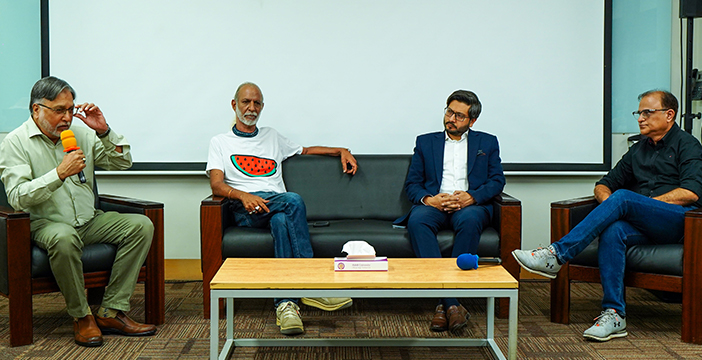
Importantly, this event is part of a long-term strategy. All showcased projects and learnings will be documented in a Learning Handbook, designed as a comprehensive guide for increasing urban vegetation.This resource will be shared with key urban governance bodies including KMC, DMCs, forestry departments, cantonments, and the Climate Change Ministry, as well as experts and community organizations.
A Collective Path Forward
This event is part of an ongoing series aimed at creating inclusive platforms for dialogue, from individual citizens to institutional policymakers. It reflects a growing realization that Karachi’s environmental solutions must be co-created, locally informed, and grounded in long-term thinking. By connecting research, innovation, and community engagement, the initiative paves the way for scalable, implementable solutions, and a more resilient, livable Karachi for generations to come.
